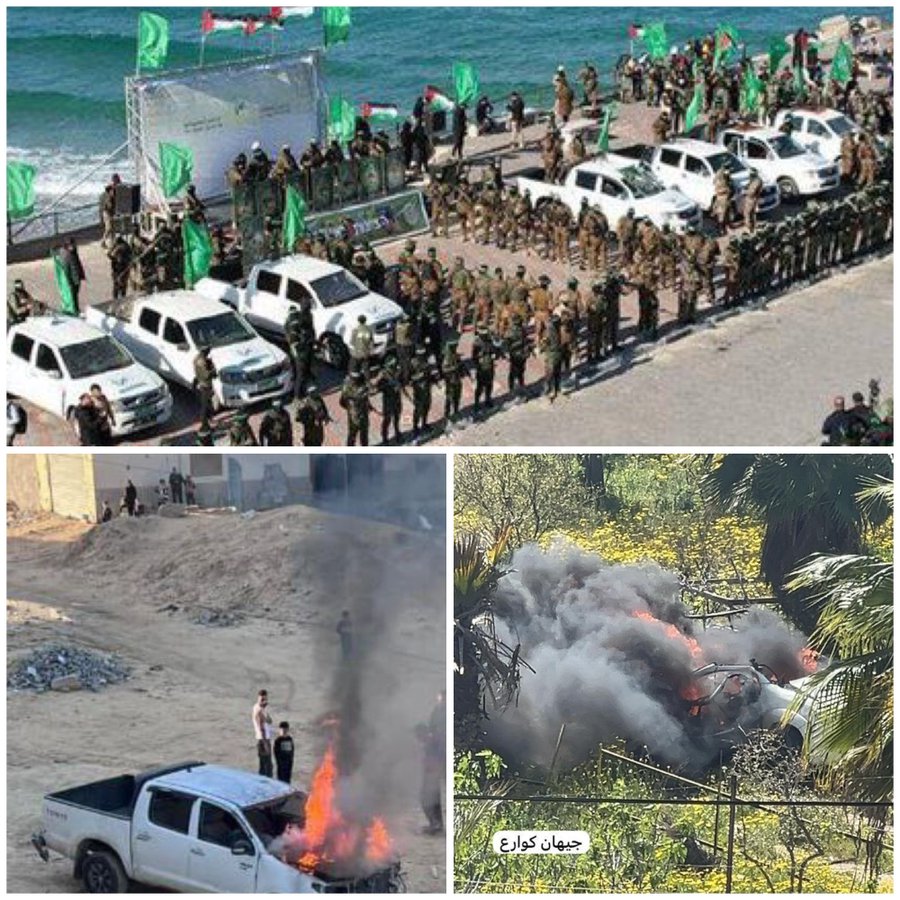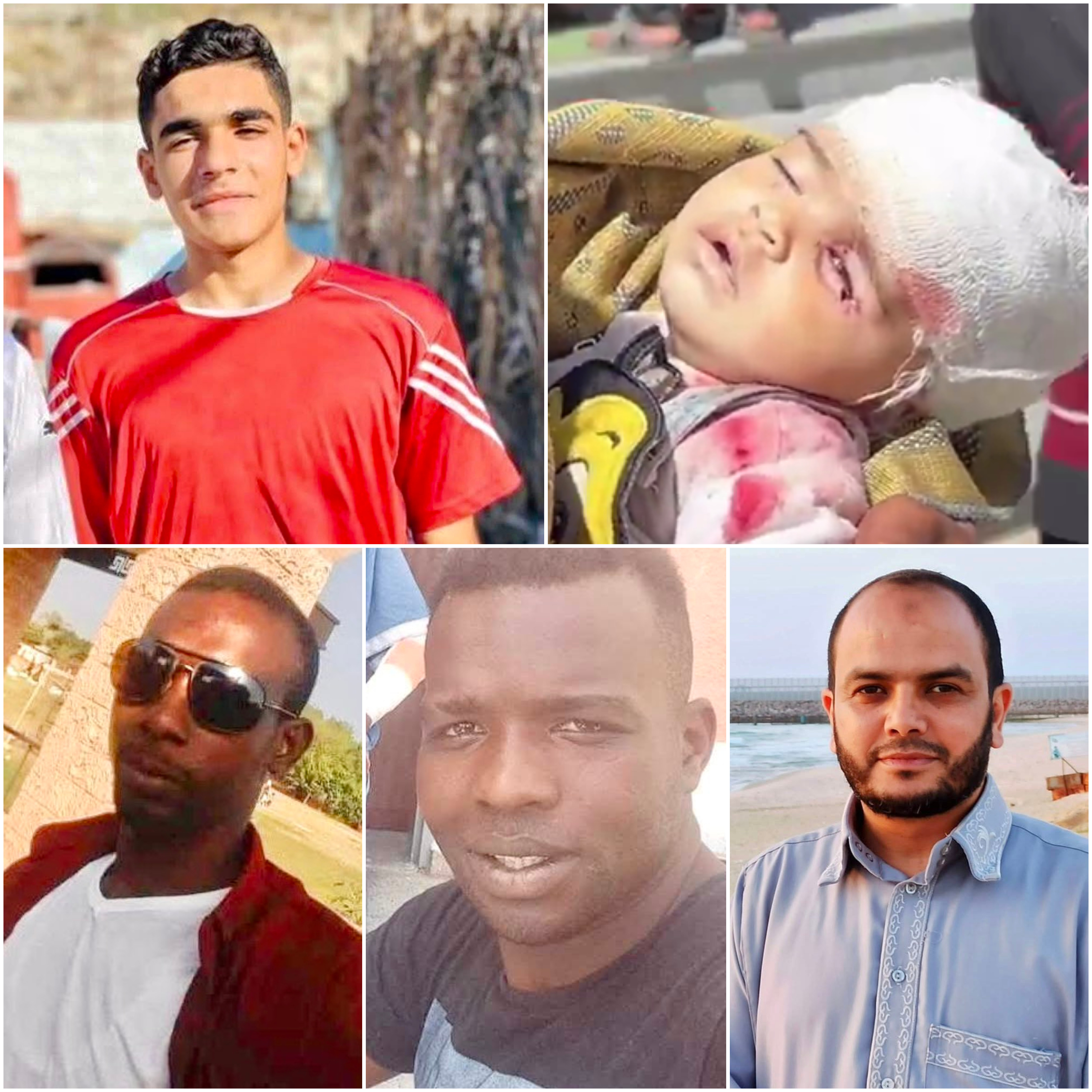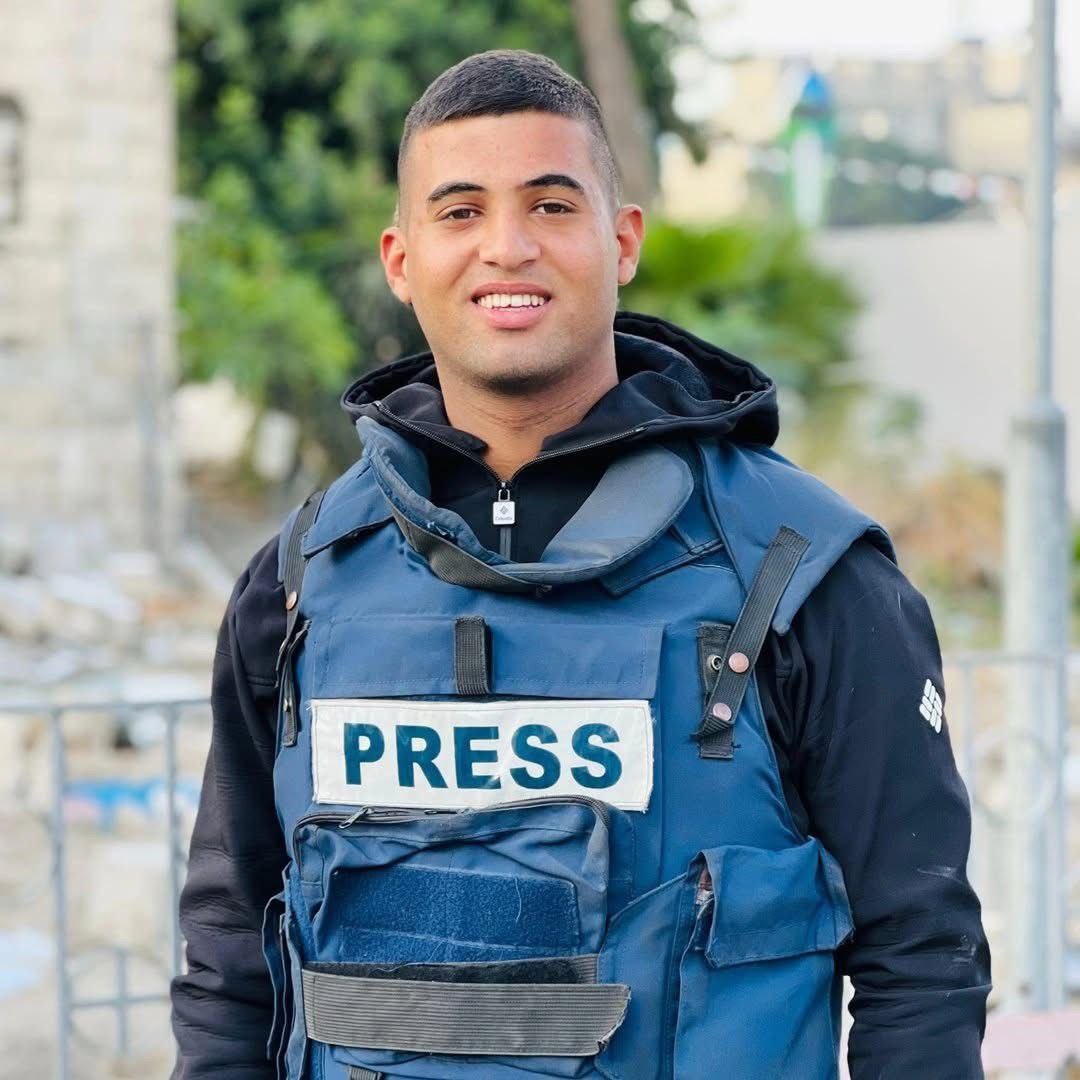
TikTok Genocide
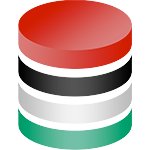
Major Israeli airstrikes campaign in South Lebanon
South Lebanon
28 March, 2025
At least 5 martyred
**On March 28, 2025,** Israel launched multiple airstrikes in southern Lebanon, marking a major escalation since the ceasefire. It also issued an evacuation order for civilians in Beirut’s Hadath area.
- The strikes, targeting areas under the pretext of hitting “Hezbollah-linked sites,” were denied by Hezbollah, which reaffirmed its commitment to the November 2024 ceasefire.
- Israeli air raids hit Kfar Houneh, Rihan Heights, Aaramta, and Sejoud, triggering chaos near two schools with hundreds of students.
- Israeli jets bombed a building in the Hadath neighborhood of Beirut’s southern suburbs, the first attack there since the November 2024 ceasefire.
- An airstrike in Kfar Tibnit killed three people and injured 18 (including 8 women and 6 children) & reducing the Sharafeddine Villa to rubble.
- A drone strike in Yohmor al-Shaqif (Nabatieh district) killed two people.
- Israeli artillery also targeted the eastern neighborhood of Khiam with conventional and phosphorus shells, and struck the border town of Kfar Kila, while a shell landed in Taybeh
Lebanon’s Public Health Emergency Operations Centre confirmed casualties, warning the toll may rise. In the evening, the death toll reached five Lebanese killed & 18 injured.
**Context :**
**Statement of Israeli occupation army Israel Katz **
*“I am sending a clear message to the Lebanese government: If you do not enforce the ceasefire agreement, we will enforce it,”* he said in a statement after Israeli aircraft hit targets in Beirut earlier today.
**Ceasefire violatons**
- Israel claimed two rockets were launched from Lebanon, which Hezbollah denied.
- NNA reported 45 Israeli violations of the ceasefire in one day.
- Since the ceasefire in November, over 1,300 Israeli violations have occurred, causing 100+ fatalities and 330+ injuries.
- Under the ceasefire agreement, Israel was to fully withdraw from southern Lebanon by January 26, but after refusing to comply, the deadline was extended to February 18. Despite this, Israel still maintains a military presence at five border outposts
Violent Pogrom in Jinba under Israeli Army protection
West Bank, Masafer Yatta, Jinba
28 Mar, 2025 - 29 Mar, 2025
### On March 28,
In the Morning, dozens of masked settlers invaded and terrorized shepherds community in the village of Khirbet Jinba, located in the Masafer Yatta area, south of Hebron.
- The events of the Morning were captured in security footage taken from a different camera at the house.
- Video Documentation of the first moments of the settlers' invasion of the village of Jinba shows dozens of masked settlers armed with clubs and rifles lift stones and run towards the village homes.
- According to AP, the matriarch of the Al-Amur family, Oula Awad, said she saw the settlers approaching her house between 8:00 AM and 9:00 AM, as she was doing laundry outside with her daughter. Her son, Qusai, 17, and husband, Aziz, 63, were washing up to prepare for Ramadan prayers when the settlers pulled up in vehicles and emerged. The settler runs toward her and told her, ‘Don’t wave. Do not move forward. We will hit you,". She and her daughter, 16-year-old Handa, are seen screaming and waving clothes in the air, calling for help.
- The settlers are then seen converging on Qusai. One settler begins hitting him with a stick as he tries to run away. Another settler smashes his head with a rock, sending him to the ground. Four settlers then kick and beat him before running away.
- Then the settlers locked Oula Awad and her daughter in a side room as they beat her younger son, Ahmad, and her husband Aziz who sustained injuries and fractures : “They entered the room and hit the windows,” said Awad. They tried to burn the furniture. “My husband was standing on the stairs, and they started beating him.” A video taken by Qusai and shared by Basel Adra showed Ahmad on the ground with a head laceration. Aziz lies nearby, his face bloodied.
- Osama Makhama, a local activist, reported that armed Israeli settler assaulted Maher Ahmad Muhammad and his son, Osama, while they were tending to their livestock. The settler beat them, causing bruises and injuries.
- Another 70-year-old man was also injured in the attack. The victims were rushed to hospital for medical treatment.
- The Palestinian Red Crescent Society reported that four civilians were acutely beaten and injured by Israeli settlers while tending to their livestock. Five village residents are hospitalized : Aziz had a chest injury and underwent surgery for skull fractures. Ahmed, 16, is in intensive care. Qusai suffered a broken arm, bruises and cuts. Another villager, Maher Mohammed, had cuts and bruises, as did his son Osama, who was also undergoing kidney examinations.
- Shortly after the attack, Israeli occupation forces raided the village, searched homes, and destroyed belongings inside several residences. More than 20 detainees were taken by soldiers, all of them residents who were attacked.
- According to AP, Nidal Younis, the head of the Masafer Yatta village council, witnessed part of the attack and was detained by police for two hours afterward. He said soldiers who arrived on scene following the attack prevented Palestinians from nearby villages from helping and threw stun grenades at homes, a claim to which the military did not respond.
**Context**
This assault is part of a broader pattern of terror attacks by Israeli colonists against Palestinian shepherds and property in the villages and hamlets of Masafer Yatta, with the backing of the Israeli military. These attacks aim to forcibly displace the local population to expand Israeli colonial settlements in the area. The village of Jinba, located in the Masafer Yatta area of southern Hebron, has been under military siege dor years and months. This blockade restricts residents' freedom of movement and prevents visitors, including relatives, lawyers, and medical teams, from entering.
**A Settler strategy to harass the Palestinian resident :**
In this "testimony" of to one of the Jewish perpetrators, אלישע ירד
@ElishaYered, a violent settler "hilltop boy" militan, from Ramat Migron, after being expelsed from Shanur settelment in the nothern part of West Bank, the attack was justified as a defense, while their settlement is illegal
"A Jewish shepherd was attacked a short while ago near the settlement of Mitzpe Yair in the Hebron Hills. Terrorists from the village of Jinba assaulted the shepherd with clubs while he was with his flock in the grazing areas and injured him. The wounded shepherd was evacuated to Soroka Hospital for medical treatment. Residents and military forces who were called to the scene pushed the attackers back to the village. The military forces are currently continuing to search for the assailants."

*Among the injured were Aziz al-Amour and his son, Ahmad, who sustained injuries and fractures*
**The statement of Israeli Police**
Israeli police states they detained 22 Palestinians from the village on suspicion of "stone throwing" and brought them in for further investigation. They claimed Palestinians had attacked two settler shepherds nearby, minorly injuring them.
“The security forces view the series of attacks in the area seriously, and will take strong action to bring those involved to justice,” the police said. They did not respond when asked by the AP why no Israeli civilians were arrested.
**Statement of IDF**
The military stated that an Israeli civilian had been attacked and injured by militants near an Israeli settlement. Then, it said “a violent confrontation developed between a number of Israeli civilians and Palestinians,” injuring another Israeli civilian.
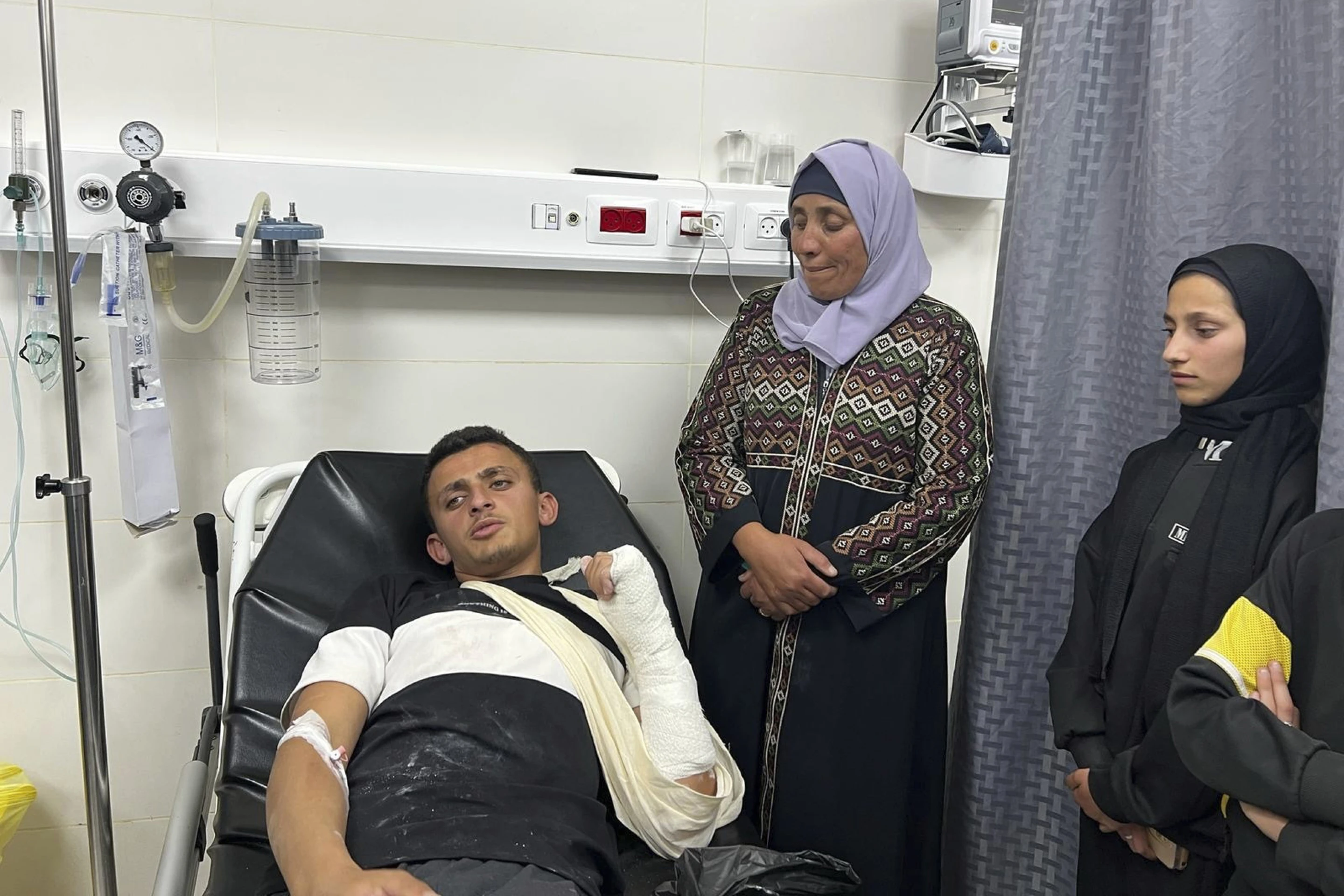 *Palestinian Qusai Al-Amur sits in a hospital bed next to his relatives following an attack by Israeli settlers on his West Bank village of Jinba, Friday, March 28, 2025. (Basel Adra via AP)*
### On March 29
- During the night, 15 of the 22 detainees were released. Seven are still being held.
- At the same time, the army returned and invaded Jinaba to finish breaking and destroying what the settlers had failed to do., around 2 a.m.. Then, the soldiers, present for more than seven hours, spilled the residents' food, emptied the cupboards, tore off the window bars, and arrested at least one resident. (According to @mistaclim)
-According to Nir Hasson, they were 140 settler soldiers. *"They entered all the houses, woke up all the residents, including women and children, and then began to destroy. According to the residents' testimonies, they destroyed all their property, spilled all the food, uprooted taps, and destroyed everything that could be destroyed for 4 hours. Each group of soldiers was equipped with a 5-kg hammer."*
- According to Muhammad Hureini and Basel Adra, *"they destroyed the school's furniture,windows,solar panels that supply the school with electricity, and cameras that documented the pogrom carried out by settlers yesterday. Moving from house to house,destroying everything*"
- According to Sarit Michaeli (@saritm0) from B'tselem,
EU Representative visited Oscar-winning co-director of “No Other Land” Hamdan Ballal in his home in Susiya (a village in the same area of Masafer Yatta) as he recovers from settler violence & arrest by Israeli forces. *"Since this welcome visit yesterday, settlers and the army destroyed an entire community, Khirbet Jinba, including an EU funded school and clinic."*
**The spokesperson for the IDF responded:**
*"During the night, IDF forces operated in the village of Jinaba as part of a planned operation aimed at locating weapons.
The allegation that the forces violated procedures during the searches is under investigation by the brigade commander."*
**On March 31 **
Local activist Mohammad Huraini shared pictures of Aziz 64 Y.O and his son 15 Y.O, severly injured on their head "they are suffering from their injuries and still getting treatment in the hospital. Meanwhile the settlers who attacked them are enjoying their freedom, and 7 Palestinians still arrested since the day of the attack from the village"
**April 1, 2025**
- The Ofer military court ordered today (Tuesday April 1) the release of the seven Palestinians who were arrested on Friday in the village of Jinaba, suspected of throwing stones at settlers.
- The judge stated in his decision that the evidence indicates the violence began as a result of a planned attack by settlers, who arrived in several armed vehicles at the village and attacked Palestinians in their homes.
- The judge added that there is a real possibility that the arrested Palestinians threw stones at the settlers in self-defense.
- Meanwhile, the Jerusalem Magistrate’s Court extended until Thursday the detention of a Jewish suspect arrested on suspicion of attacking Palestinians during the incident, and the police arrested another Jewish suspect today. Three settlers were arrested in connection with the attack on Palestinians. One, a minor, was released to house arrest due to his age and circumstances, while two remain in custody. The court highlighted that Israeli suspects provided evasive answers, with some refusing to answer questions.
- Palestinians: The Ofer Military Court ordered the release of seven Palestinians suspected of throwing stones at settlers in Jinba. The judge ruled they may have acted in self-defense and noted inconsistencies in the settlers' accounts. Initially, 22 Palestinians were arrested; 15 were released earlier, and the remaining seven were freed with conditions, including a cash deposit and a contact ban.
- Israeli Military Action: Later the same day, IDF soldiers, alongside settlers, raided Jinba, destroying homes. The Israeli army disciplined its personnel, detaining a commander and two soldiers for seven days, dismissing an officer, and issuing a reprimand to a brigade commander. The IDF acknowledged unauthorized searches and vandalism during the raid.
A week of raids in Beit Furik
West Bank, Nablus, Beit Furik
27 Mar, 2025 - 31 Mar, 2025
**On March 28, 2025,** during the night, CCTV footage documented the moment Israeli forces opened fire and wounded a Palestinian youth while raiding the town of Beit Furik, east of Nablus.
**On March 29, 2025,** a child and a young man were injured by Israeli live ammunition during an Israeli military raid during the afternoon on the town of Beit Furik. Israeli forces stormed the town, firing live bullets and tear gas canisters in the process. The raid resulted in the injuries of the child and the young man.
The Palestinian Red Crescent Society reported that its emergency teams treated
- a 15-year-old boy who sustained a gunshot wound to the thigh,
- a 30-year-old man who was shot in the foot during the Israeli raid.
Both individuals were immediately transported to a nearby hospital for further treatment.
**On March 31,** during the night, Israeli special forces raided again the town, abducting two young men.
Night tent strike - Khan Younis
Gaza, Khan Younis
27 March, 2025
At least 1 martyred
Around 1 am, an israeli airstrike targeted a dispalcement tent in Khan Younis.
One person was killed and other relatives injured.
**Name of the martyr:**
- Muhammad Mahmoud Abu Labda
Aliyan family massacre
Gaza, Beit Lahia, North Gaza
24 March, 2025
At least 5 martyred
Around 10:30 pm, an Israeli airstrike targeted the Alyan family home in Beit Lahia.
**Names of the martyrs:**
1. Ilham Abdulqader Aliyan "Umm Youssef"
2. Tasneem Youssef Rajab (child)
3. "Umm Nabil" Rajab (elderly)
4. Kholoud Aliyan
5. Manal Aliyan
Over 100 vehicles bombed in one day
Gaza
24 Mar, 2025 - 25 Mar, 2025
At least 3 martyred
Israel carried out a series of airstrike on cars across Gaza, with an apparent focus on those resembling white Toyota cars used by the resistance factions, as was observed during the release of Israeli captives.
This was confirmed around 5 pm by the IDF's arabic spokesman Avichay Adraee who stated that the IDF truck "**more than 100 pickup trucks"** under the pretext that the vehicles were used on october 7 and that they were also used to transport weapons.
One location in Al-Maghazi was revealed by fact-checking sources to be am ambulance repair garage.
Below is a list of such airstrikes that have been reported by local media outlets:
- 4:30 am: Al-Zanna, Khan Younis; injuries reported
- 4:50 am: Sheikh Nasser, Khan Younis
- 5:20 am: Nuseirat, central Gaza
- 6:15 am: vicinity of Musa ibn Nusayr school, Daraj neighborhood, Gaza City
- 8:20 am: vicinity of Ain Jalut Towers, Nuseirat, central Gaza
- 10:30 am: Kaff Miraj area, Rafah
- 1:15 pm: west of Gaza City
- 1:50 pm: Jourat al-Lut, Khan Younis
- 2:30 pm: Al-Jurn, North Gaza. **One person killed**
- 3:50 pm: opposite Al-Wifaq club, Tuffah, Gaza City
- 8 pm: Bir al-Naaja, Beit Lahia
- 9:45 pm: Bureij, central Gaza
- 10:45 pm: Gaza City
- March 25, 1:15 am: Musabah area, Rafah. **2 killed**
1. Tamer Nabil Barhoum
2. Abdurahman Al-Zamili
9 killed in Nuseirat
Gaza, Deir al-Balah, Nuseirat
24 March, 2025
At least 9 martyred
The Israeli army carried out a series of strikes throughout the day since the dawn hours, culminating in the murder of nine people.
- 5 am: helicopter strike on a vehicle
- 9 am: 2 killed in a strike on a group of civilians in Al-Mughraqa, north of Nuseirat camp
- Midday: 4 killed and 16 injured in an airstrike on a tent at Al-Razi UNRWA school
**Names of the martyrs:**
1. Haider Shadi Nawfal
2. Muhannad Saeed Al-Obaid
3. Moamen Saeed Al-Obaid (Muhannad's brother)
4. Ahmed Moin Abu Marhail
5. Mohammed Ibrahim Hamada
6. Muhammad Suleiman Al-Kharti
7. Atef Nidal Ismail (18 y/o football player)
8. Rami Hamdan Al-Ashqar
9. Salsabil Muhammad Al-Sahloub
Besieged house and assasination in Qalqiliya
West Bank, Qalqilya
24 Mar, 2025 - 25 Mar, 2025
At least 1 martyred
On March 24, 2025, Israeli special forces, accompanied by military reinforcements, stormed the city from its eastern and northern entrances, raided the al-Naqqar neighborhood, and surrounded a commercial store in the western part where the slain youth was located.
- They demanded via loudspeakers that the former prisoner Maskawi, who was released at the end of last year after spending 22 months in captivity, surrender. But he decided to resist.
- A day earlier, his father and two uncles were abducted by Israel in an attempt to pressure him into surrendering. Instead, Baraa chose to resist until his final moments.
- The Israeli special forces fired heavy gunfire at the besieged store, followed by firing Energa missiles.
- After failing to kill him in an armed clash that lasted for hours, Israeli special forces sent a suicide drone. The Israeli army has started using suicide drones in the West Bank.
- The body of Maskawi was then seized.
- Security sources said that other citizens were injured. During the raid, and the heavy use of live ammunition, a citizen was injured in the foot by live bullets. He was transferred to Darwish Nazzal Governmental Hospital in the city for treatment, where his injury was described as moderate. Meanwhile, another youth was detained after being injured and taken to an unknown location.
Violent Pogrom on Susiya and abduction of Hamdan Ballal
West Bank, Masafer Yatta, Susiya
24 March, 2025
On March 24, 2025, Israeli settlers carried out a massive attack in the village of Susiya.
- Dozens of settlers stormed houses in the village, threw stones, smashed windows and vehicles, and assaulted residents as well as solidarity activists.
- These settler militias, backed by Israeli forces, blocking ambulances from accessing the area.
- Several residents were injured, and at least one of them was arrested by the apartheid regime that accompanied the attack.
- Hamdan Ballal Al-Huraini (director film 'No Other Land'), was abducted by settlers and soldiers, after he was injured during the attack. While being evacuated, he was taken out of the ambulance and arrested by the army. Requests to the army for an update on his whereabouts and condition were not answered.
- According to AFP, he was detained by the Israeli military, according to two of his fellow directors and other witnesses. The filmmaker Hamdan Bilal was one of three Palestinians detained in the village of Susiya, according to attorney Leah Tsemmel. Police told her they’re being held at a military base for medical treatment and she said she hasn’t been able to speak with them.
- Most residents are hiding in the mountains, fleeing for their lives as Israeli soldiers and settlers shoot at them and destroy their homes.
**Mohammad Hureini statement on X**
*"My cousin Hamdan is still missing after being abducted by the Israeli army and extremists settlers during the terror pogrom on Susya village ,in Masafer Yatta . No one knows where he is until this moment, This is state-backed kidnapping !"*
**Basel Adra (co-director of 'No Other Land') on x**
*"I'm standing with Karam, Hamdan's 7 year old son, near the blood of Hamdan's in his house, after settlers lynched him. Hamdan, co-director of our film No Other Land, is still missing after soldiers abducted him, injured and bleeding. This is how they erase Masafer Yatta."*
- On March 25, later on Tuesday, the police announced in a statement the release of the three Palestinians. "After their interrogation, the three men were released by the police under certain conditions (...) and on bail,".
- Basel Adra, who worked with Hamdan Bilal on No Other Land, posted a photo on X showing Bilal after his release, with his eyes closed and his t-shirt stained with blood. "Hamdan has been released and is currently in the hospital in Hebron receiving treatment. He was beaten by soldiers and settlers all over his body. The soldiers left him blindfolded and handcuffed throughout of military base last night."
- After his release, Hamdan Ballal claimed that it was the violent settler Shem Tov Luski was the one who hurt him behind the head with a rock, and that the settlers targeted him beacuse he was an Oscar winner.
Murder of journalist Hossam Shabat
Gaza, Beit Lahia, North Gaza
24 March, 2025
At least 2 martyred
Around 2:50 pm, an Israeli airstrike targeted the car of renowned journalist Hossam Shabat in Beit Lahia.
He was killed on the spot along with another person.
His close colleague Anas Al-Sharif [reported](https://x.com/AnasAlSharif0/status/1904247258457014613) that Hossam was expecting his family, displaced in southern Gaza, to return to the north and start arrangements for his marriage.
### Hossam's last message and will:
“*If you’re reading this, it means I have been killed—most likely targeted—by the Israeli occupation forces. When this all began, I was only 21 years old—a college student with dreams like anyone else. For past 18 months, I have dedicated every moment of my life to my people. I documented the horrors in northern Gaza minute by minute, determined to show the world the truth they tried to bury. I slept on pavements, in schools, in tents—anywhere I could. Each day was a battle for survival. I endured hunger for months, yet I never left my people’s side*.
*By God, I fulfilled my duty as a journalist. I risked everything to report the truth, and now, I am finally at rest—something I haven’t known in the past 18 months . I did all this because I believe in the Palestinian cause. I believe this land is ours, and it has been the highest honor of my life to die defending it and serving its people.*
*I ask you now: do not stop speaking about Gaza. Do not let the world look away. Keep fighting, keep telling our stories—until Palestine is free.*”
### Tribute by journalist Jeremy Scahill, from Drop Site:
*"Time now is measured not in minutes, but in lifetimes of pain and tears. With every passing moment the anxiety and tension of the people here grows, as they wonder whether they will stay alive long enough for the fire to cease," wrote Hossam Shabat in one of his stories for us.
*People see Palestinian journalists reporting the horrors of the genocide against their own families and people. But they are so much more than the videos broadcast on social media. Hossam was a lyrical, poetic, somehow optimistic, human being with remarkable courage & dedication. Israel publicly put Hossam on a kill list and he would receive threatening calls and warnings. He saw his friends murdered. Yet he never ceased his journalism, his absolute dedication to showing the world the reality of the Israeli genocide against the Palestinians of Gaza.*
### Tribute by journalist Imad Zakout:
*Hossam Shabat is a name that has shone on Al Jazeera Mubasher and social media. His work began at the Indonesian Hospital at the beginning of the war on the Gaza Strip. I noticed his constant activity in covering the crimes of the occupation and his continuous growth in journalistic coverage.
Hossam became an influential journalist and a prominent figure in northern Gaza. He not only covered events but also initiated charitable initiatives to support his people.
We will definitely miss you, Hossam. Despite the short period of time you worked, you left behind a great media legacy that people will remember you for and will be an archive for future generations.
May God have mercy on you, Hossam*
**Names of the martyrs:**
1. Hossam Shabat (journalist)
2. Muhamamd Ibrahim Al-Dahnoun Al-Masri
The details for each video come from social media. None of it has been verified.





